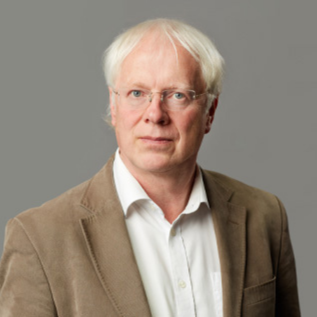John Irvine is Professor of Chemistry at the University of St Andrews. He has established a significant international research profile investigating fundamental electrochemistry, solid-state chemistry and materials science, addressing critical energy problems. The research is driven both by the need to solve the current environmental and energy supply problems facing mankind and an interest in new science that challenges conventional assumptions. Irvine has over 500 publications and has a WoS h-index of 63. Irvine’s research has been recognised by a number of national and international awards, including including the honour of the Commander of the Order of the British Empire(CBE) in the Kings Birthday Honours List 2024, the Royal Society’s Hughes Medal in 2021, the Lord Kelvin Medal from the Royal Society of Edinburgh in 2018, the Schönbeim gold medal from the European Fuel Cell Forum in 2016, the RSC Sustainable Energy Award in 2015, and earlier RSC recognition by being awarded the Bacon and Beilby awards. Since 2012 alone he has published 10 Nature-family papers, including one on electrochemical switching in Nature in 2016. He has a strong international standing, having held senior visiting appointments in the US, Australia and China and has strong links with a number of leading laboratories across the Chinese Academy of Science, including as Thousand Talents Professor at Fujian Institute of Research on the Structure of Matter. He was re-elected European Councillor of the International Society for Solid State Ionics in 2015. Highlights of Irvine’s activities include discovery of the emergent nanomaterials phenomenon, establishing the field of oxide fuel electrodes, delivering high performance direct carbon fuel cells and demonstration of significant hydride ion conductivity. Other important achievements relate to photocatalysis, lithium-ion batteries, non-stoichiometric oxides, structure/property/function relationships, catalysis, electrocatalysis and bioenergy.
Professor John Irvine
School of Chemistry, University of St. Andrews


